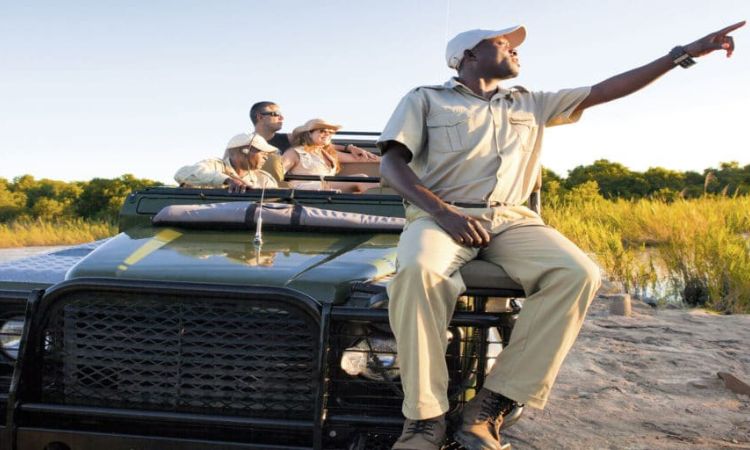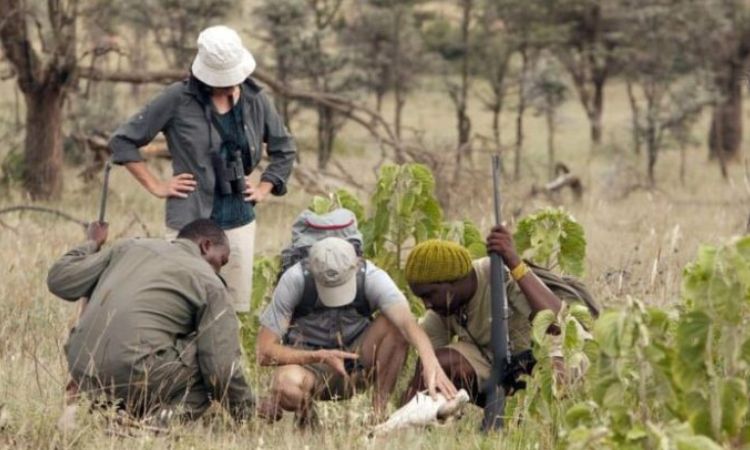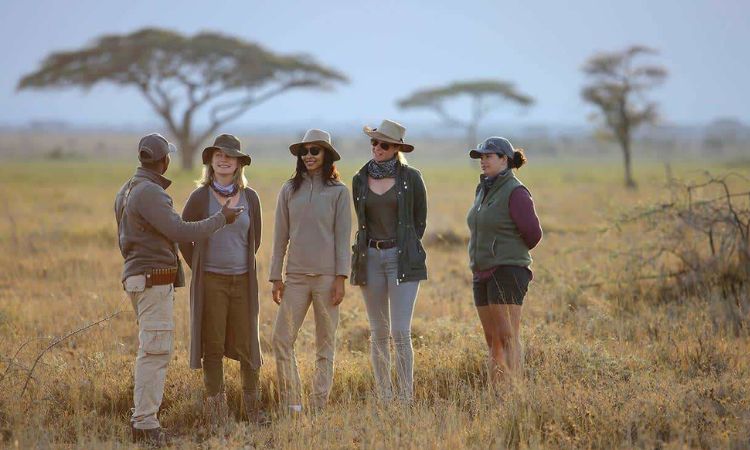2025 Top Guide to What is the role of a safari guide
What is the role of a safari guide: A safari guide is the linchpin of any African safari, transforming a trip into the wild into an unforgettable, safe, and enriching experience.
Far more than a driver or spotter, a safari guide is a storyteller, naturalist, navigator, and guardian of both guests and the wilderness.
In iconic destinations like Tanzania’s Serengeti or Uganda’s Murchison Falls National Park, their expertise shapes every moment, from tracking a leopard through dense bush to decoding the calls of a lilac-breasted roller.
Explore with us the multifaceted role of a safari guide, their responsibilities, skills, training, and impact, providing everything you need to know about these unsung heroes of the savanna in 2025.
Core Responsibilities: More Than Meets the Eye
At its core, a safari guide’s role is to deliver a safe, immersive, and educational wildlife experience. Their responsibilities span several domains, each demanding a unique blend of skills:
Wildlife Expertise and Tracking
Guides are living encyclopedias of the bush, identifying animals, plants, and birds with precision. They can distinguish a black rhino from a white rhino by track patterns or predict a lion’s behavior based on ear twitches.
In the Serengeti, they might navigate to a wildebeest migration crossing, while in Kruger, they could lead you to a hidden leopard kill.
Tracking involves reading spoor, scat, and subtle signs like bent grass—skills honed over years. For example, a guide might spot a cheetah’s drag marks, ensuring guests witness a fresh kill without disturbing the animal.
Guest Safety and Comfort
Safety is paramount. Guides enforce strict protocols: maintaining 20-meter distances from predators, ensuring silence during tense encounters, and navigating vehicles through rough terrain without incident.
They’re trained to read animal behavior—knowing when a charging elephant is bluffing or when a buffalo means business.
In 2025, with increasing human-wildlife conflict, guides also manage risks like sudden weather changes or rare but real threats like poacher activity in remote areas.
They carry first-aid kits, manage guest anxieties, and ensure comfort, from providing blankets on chilly dawn drives to arranging bush breakfasts.

Education and Interpretation
A guide’s storytelling brings the bush alive. They weave facts about animal behavior, ecology, and conservation into narratives that captivate.
For instance, explaining why a hyena’s bone-crushing jaw is an evolutionary marvel or how termite mounds regulate savanna ecosystems adds depth to sightings.
In culturally rich areas like Tanzania, guides might share Maasai folklore about lions, bridging nature and heritage. This role is vital for kids and first-timers, making a sighting of a dung beetle as thrilling as a lion pride.
Conservation Advocacy
Guides are frontline conservationists. They educate guests on threats like poaching or habitat loss, fostering a commitment to protect wildlife.
In Ziwa, guides might discuss rhino anti-poaching efforts; in Murchison Falls NP, they highlight community-led anti-encroachment projects.
Many guides work with organizations like the International Gorilla Conservation Programme, ensuring tourism funds habitat protection. Their influence shapes guest behavior—encouraging low-impact practices like avoiding litter or respecting park rules.
Logistics and Navigation
Navigating vast, often unmarked wilderness is no small feat. In Serengeti’s 30,000 square kilometers, guides rely on intimate terrain knowledge, GPS, and two-way radios to find wildlife and avoid getting stuck in seasonal mud.
In Kruger, where self-drive is common, guides in private reserves lead off-road excursions, requiring precision to avoid damaging flora.
They coordinate with camps, manage tight schedules (dawn drives start at 5:30 AM), and handle emergencies like vehicle breakdowns.
Essential Skills: A Blend of Art and Science
The best safari guides are polymaths, blending hard skills with soft ones:
- Field Knowledge: Guides master zoology, botany, and ornithology, often identifying 500+ species. They understand ecosystems—like how acacia trees support giraffes and ants symbiotically—and can explain climate change impacts in real time.
- Observation and Intuition: Spotting a leopard’s tail flick in dense bush or hearing a distant lion roar requires razor-sharp senses. Guides often “feel” the bush, anticipating animal movements based on subtle cues.
- Communication: Fluency in English (and often French, German, or Swahili) is key, as is tailoring explanations to diverse audiences—kids, scientists, or casual tourists. Charisma keeps guests engaged during long drives.
- Cultural Sensitivity: In regions like Tanzania, guides respect local tribes like the Maasai, integrating their perspectives without exoticizing. They navigate cultural nuances for international guests.
- Crisis Management: From calming a guest during a mock elephant charge to administering first aid, guides handle high-pressure situations with cool heads.
Training and Qualifications: A Rigorous Path
Becoming a safari guide is no walk in the park. In South Africa, guides pursue certifications through the Field Guides Association of Southern Africa (FGASA).
Levels range from Apprentice (basic tracking) to SKS (Specialist Knowledge and Skills), requiring 200+ hours of training, practical assessments, and first-aid certification.
In Tanzania, guides often train via programs like the Tanzania National Parks Authority (TANAPA) or private eco-training schools, blending classroom ecology with bush apprenticeships.
Training covers firearm handling (for emergencies, though rarely used), 4×4 driving, and conservation ethics. Many guides start as trackers—spotters who sit on vehicle hoods, reading signs—before advancing.
Ongoing learning is critical; in 2025, guides increasingly study tech like drone monitoring or satellite tracking to aid conservation.

Challenges and Risks: Life on the Frontline
Guiding isn’t glamorous. Long hours (4 AM wake-ups), unpredictable wildlife, and demanding guests test resilience. In conflict zones like the DRC’s Virunga, guides risk encounters with armed groups—over 200 rangers have died since 1996.
Even in stable parks, guides face physical risks: a 2023 incident in Kruger saw a guide injured by a hippo during a bush walk. Emotionally, witnessing poaching or habitat loss takes a toll, yet guides remain passionate advocates.
Weather adds complexity. Serengeti’s rainy season (March-May) turns tracks into quagmires; Kruger’s summer heat exhausts.
Balancing guest expectations—some demand all Big Five in one drive—requires diplomacy. Tips ($10-20/day/guide) supplement modest salaries (often $300-800/month), but economic instability in some regions strains livelihoods.
Impact on Guests and Conservation
A guide’s influence is profound. For guests, they turn a trip into a transformative journey. A 2024 survey by SafariBookings found 85% of travelers rated guides as the “make-or-break” factor in their experience. A skilled guide makes a distant elephant herd feel personal, weaving stories that linger long after the safari ends.
For conservation, guides are vital. They enforce park rules, like maintaining distance from animals, and report illegal activity.
Tourism revenue—$50M+ annually in Serengeti, $30M in Kruger—funds anti-poaching and community projects, often directly supported by guide advocacy. In 2025, guides increasingly use apps to log sightings, aiding research on species like cheetahs.
Choosing a Safari with a Great Guide
In 2025, selecting a safari with top guides maximizes your experience. At Car Hire Uganda, we specialize in pairing you with expert local guides who know Uganda’s wild heart—from Bwindi’s misty gorilla trails to Queen Elizabeth N.P lion prides.
Our English-speaking pros, trained in FGASA standards, handle 4×4 Car rentals with pop-up roofs, ensuring safe, immersive drives.
Affordable rates start at $50/day; book now for gorilla permits and seamless self-drive or chauffeured adventures that turn trips into legends.

